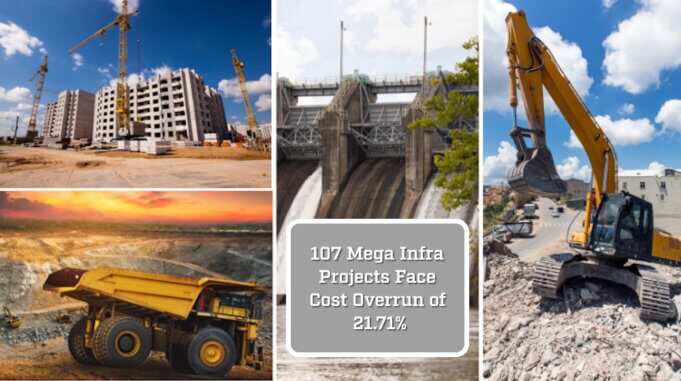The Quarterly Mega Project Implementation Status Report (QMPISR) on Central Sector Mega Projects for Q3/FY24 details the progress of 265 projects overseen by various ministries/departments/CPSUs of the Government of India. These projects, each costing Rs 1,000 crore or more, were originally budgeted to cost Rs 8,51,771.78 crore, but are now estimated to require Rs 10,36,691.47 crore, indicating a 21.71 percent cost overrun. As of December 31, 2024, Rs 4,71,953.62 crore had been expended, accounting for 45.52 percent of the total anticipated completion cost.
Among the 265 projects, 3 are ahead of schedule, 52 are on schedule, and 140 are delayed according to their original completion timelines. However, the number of delayed projects decreases to 129 when considering the latest schedules. Additionally, 70 projects did not report either original or anticipated completion dates.
Of the 265 Mega Projects, 107 are experiencing cost overruns amounting to Rs 1,87,774 crore, or 77.63 percent, compared to their sanctioned costs. However, based on the latest approved costs, 80 projects have reported cost overruns totalling Rs 1,24,640.8 crore, equivalent to 89.6 percent. Furthermore, 56 projects are facing both time and cost overruns.
A total of 140 projects are behind schedule compared to their original timelines, though this number decreases to 129 when considering the latest schedules. Compared with the latest schedules, the percentage of projects experiencing time overruns decreased from 53 percent to 49 percent. Additionally, 24 projects have reported delays ranging from 1 to 96 months compared to their original schedules. These delays are predominantly observed in the Roadways and Highways (10), Electricity (5), Coal mining (4), Petroleum (2), Railways (1), Atomic energy (1), and Steel (1) sectors.
Factors contributing to time overruns include delays in clearances (such as land acquisition and environmental permits), inadequate infrastructure, scope changes, law enforcement issues, municipal permissions, utility relocation delays, insufficient pre-project planning, equipment/service supply delays, funding constraints, force majeure events, and unexpected geological conditions. Similarly, reasons for cost overruns include inflation, exchange rate fluctuations, higher tender values, and the high cost of environmental safeguards and rehabilitation measures.











